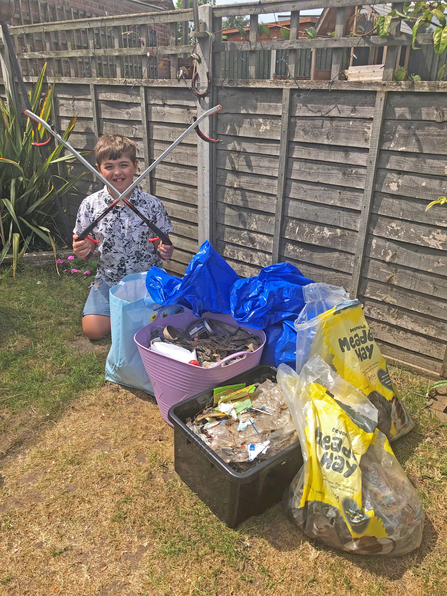Joshua Drake, from Ipswich, has a passion for improving the environment and has recently made a huge difference at Trimley Marshes nature reserve.
Josh was shocked by the quantity of plastic waste he saw when he and his mother were taking their exercise walk at the reserve, and instead of just walking by he took it upon himself to clear it up. This was no small task, the rubbish along the tide line was a thick tangle of fishing line, rope, plastic sheets, bags and bottles; much of it degraded so it shredded into smaller and smaller fragments as they cleared it. Some of the plastic had become entwined amongst the grasses and plants, and it was a delicate process to safely remove it. He also found thousands of nurdles; tiny pellets of plastic used in manufacturing, which sadly end up polluting our rivers and seas. As you can imagine, clearing these small nurdles was a huge challenge, with hours spent checking the soil with a pair of tweezers in hand.

